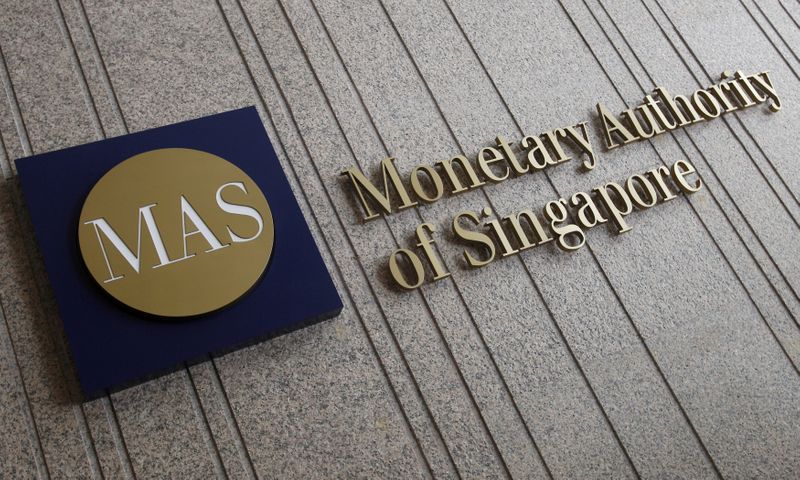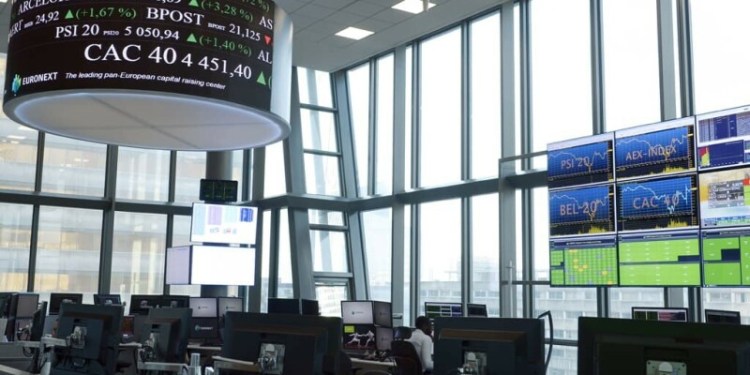
© Reuters. FILE PHOTO: The logo of the Monetary Authority of Singapore (MAS) is pictured at its building in Singapore in this February 21, 2013 file photo. REUTERS/Edgar Su/File Photo
By Chen Lin
SINGAPORE (Reuters) – Singapore’s central bank is expected to leave monetary policy on hold at its October review, analysts say, as highly transmissible coronavirus variants spread locally and across the world, threatening the pace of economic recovery.
All 11 economists in a Reuters poll this week expect the Monetary Authority of Singapore (MAS) to keep its exchange-rate based policy settings unchanged at its bi-annual meeting due on or before Oct. 14.
“The global outlook is still marred by the spread of the Delta variant. Further, the COVID-19 situation in Singapore has deteriorated with record high daily cases,” said Denise Cheok, economist at Moody’s (NYSE:MCO) Analytics. “The central bank is unlikely to tighten monetary policy during such a delicate juncture.”
The cit-state’s economy is expected to grow 6% to 7% this year, after last year’s record recession as the pandemic hit the trade and finance hub hard.
Singapore’s central bank manages monetary policy through exchange rate settings, letting the local dollar rise or fall against the currencies of its main trading partners within an undisclosed band.
It stayed on hold at its last review in April, maintaining the policy band’s rate of appreciation at zero per year.
Some economists had expected the central bank to begin tightening in October if the local pandemic situation remained stable.
However, Singapore’s new COVID-19 cases are setting record highs of more than 2,000 infections in recent days, prompting authorities to tighten measures despite the country achieving one of the highest vaccination rates in the world at 82%.
Economists said the curbs could dampen the recovery in the consumer-facing sectors such as aviation, hospitality, food and beverage and retail. The Singapore government has set aside S$650 million ($480 million) to support businesses affected by the latest measures.
The MAS may tighten monetary policy in April, five economists said. Singapore’s core inflation rate – the central bank’s favoured price measure – hit a two-year high in August, but economists expect prices to stay benign over the short term and gradually rise.
“We could expect MAS to sound more hawkish to prepare markets for a possible tightening at the April 2022 meeting with economic growth likely remaining robust in 2022 and core inflation pressures gradually building,” said Alex Loo, macro strategist at TD Securities.
($1 = 1.3533 Singapore dollars)
Source: Investing.com




























